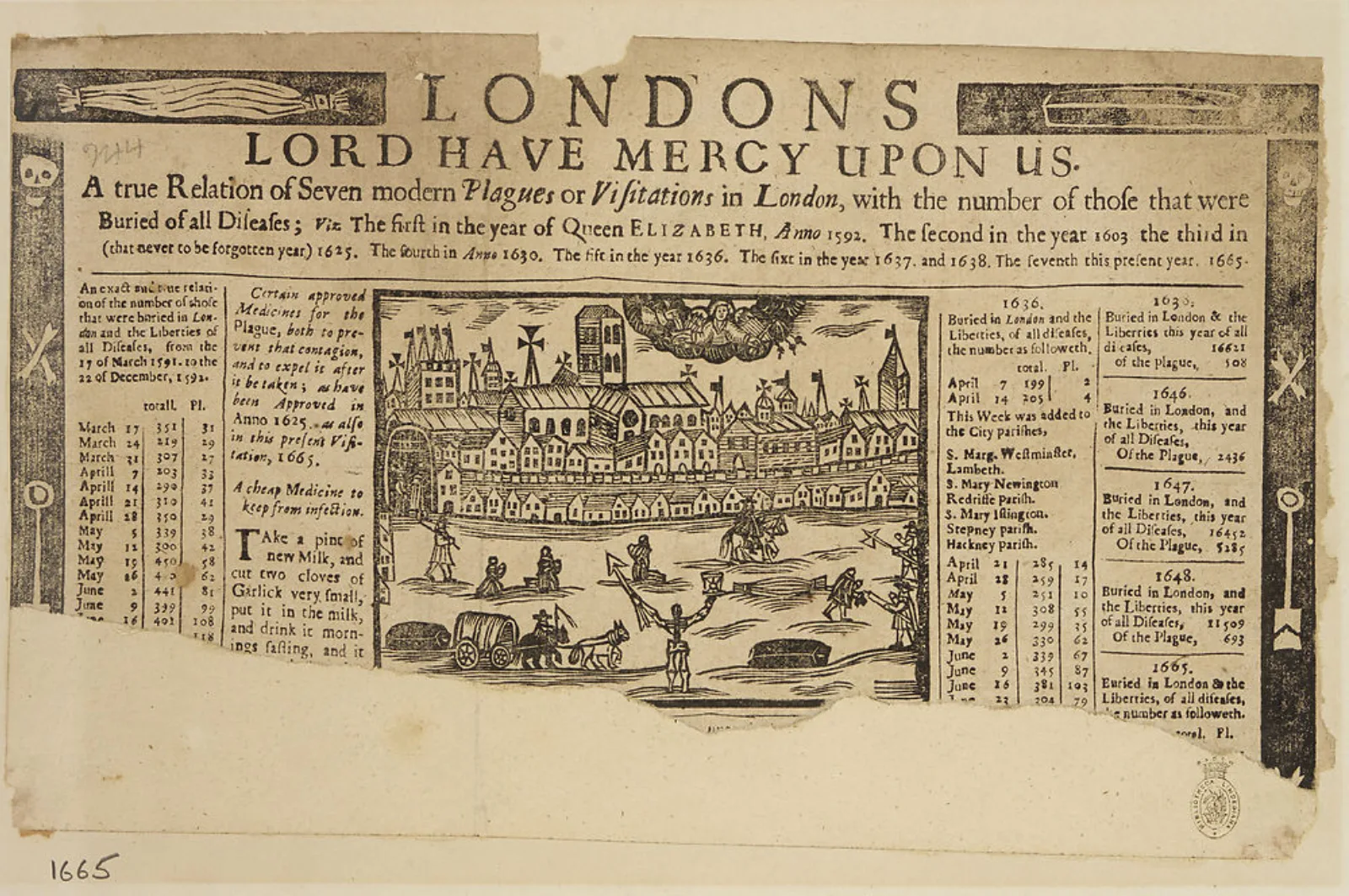Living with COVID-19 has forced us to grapple with how to communicate loss on a national scale as efforts to quantify our losses have been mired in controversy. Exactly how many have died? Which deaths “count” in the reported COVID-19 numbers? Who should receive financial and other forms of charitable support? Who should pay for it and for how long? From our reliance on institutional dashboards to our attempts to represent death tolls in the media, we have struggled to convey and respond to the scale of our loss. To what extent have we been able to express the scope and depth of our pandemic experience, honor the dead, and learn lessons that will benefit us moving forward?
As this seminar seeks to illuminate, we are not the first to encounter these challenges. The seventeenth-century Lord Have Mercy broadsides popular in London during plague outbreaks give expression to them. Hybrid creations, Lord Have Mercy broadsides were adapted from official municipal bills of mortality to include the weekly death tolls as well as prayers, histories, images, and poems. They were also designed with long-term personal use in mind: printers set up columns that allowed owners to record future death tolls, creating a handwritten record of the epidemic.
In this seminar, participants will look at several of these documents from the summer of 1665, the worst period of that year’s outbreak. As we examine these broadsides, we will explore a host of relevant questions, including what these documents can tell us about how Londoners understood loss to their cities, neighborhoods, and families; how these documents helped and perhaps hindered their coping; and how the act of recording–by counting, mapping, and narrating–helps and hinders humans as they respond to complex, wide scale loss.
We will close by examining side by side the Lord Have Mercy broadsides and artifacts from our own pandemic. What can we, in the age of big data, learn from these broadsides? How do our own experiences with loss shape the way we respond to the traces of grief on these documents? Finally, in what ways might we say that our early modern and current attempts at recording work to transform grief and despair into a sense of hope with the potential for active healing?
This virtual seminar is a part of the Processing the Pandemic series, which aims to use the experience of the medieval, early modern, and Indigenous past to guide our own response to the COVID-19 pandemic. This series is co-organized and co-sponsored by the D'Arcy McNickle Center for American Indian and Indigenous Studies at the Newberry Library, the Centre for the Study of the Renaissance at the University of Warwick, and the Center for Renaissance Studies at the Newberry Library.
Learn more about the instructors: Eileen Sperry and Rebecca Totaro.
